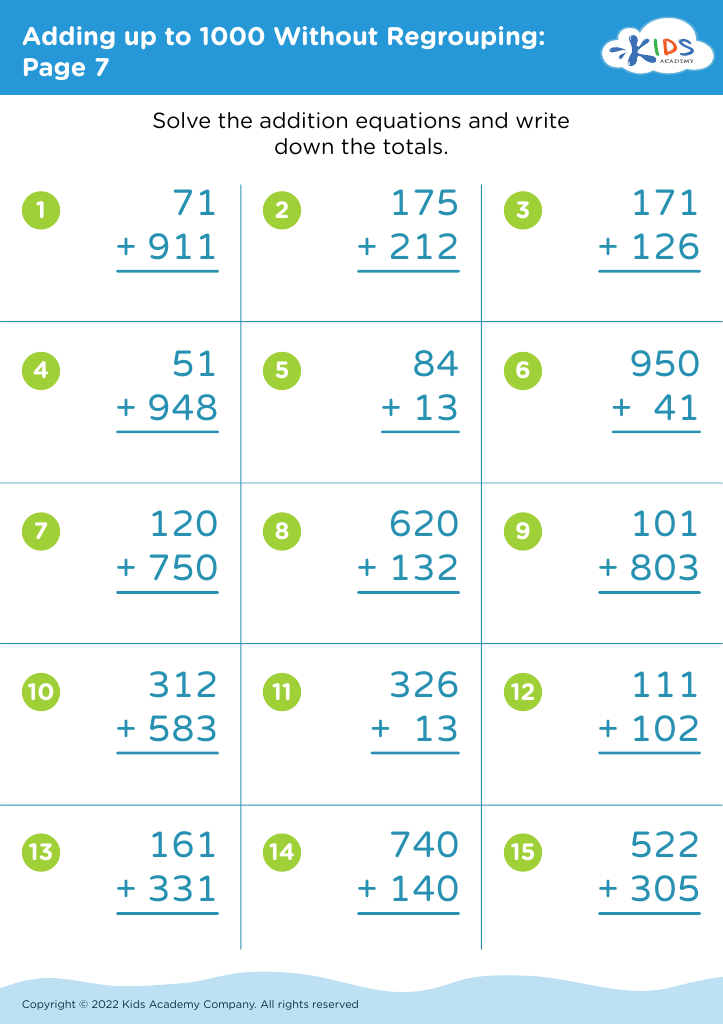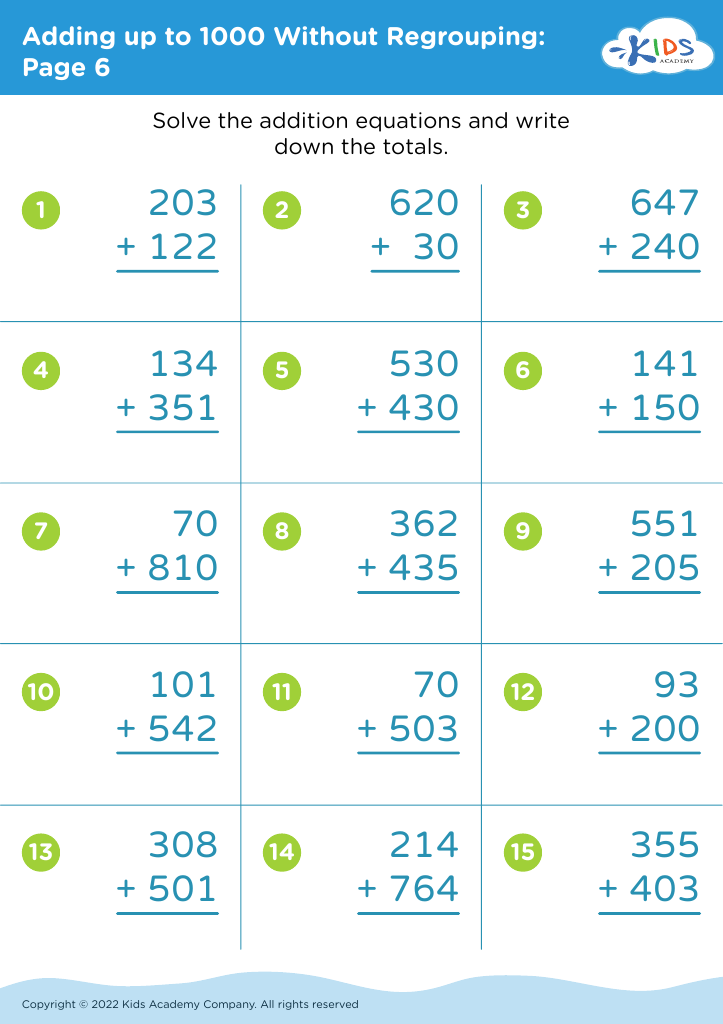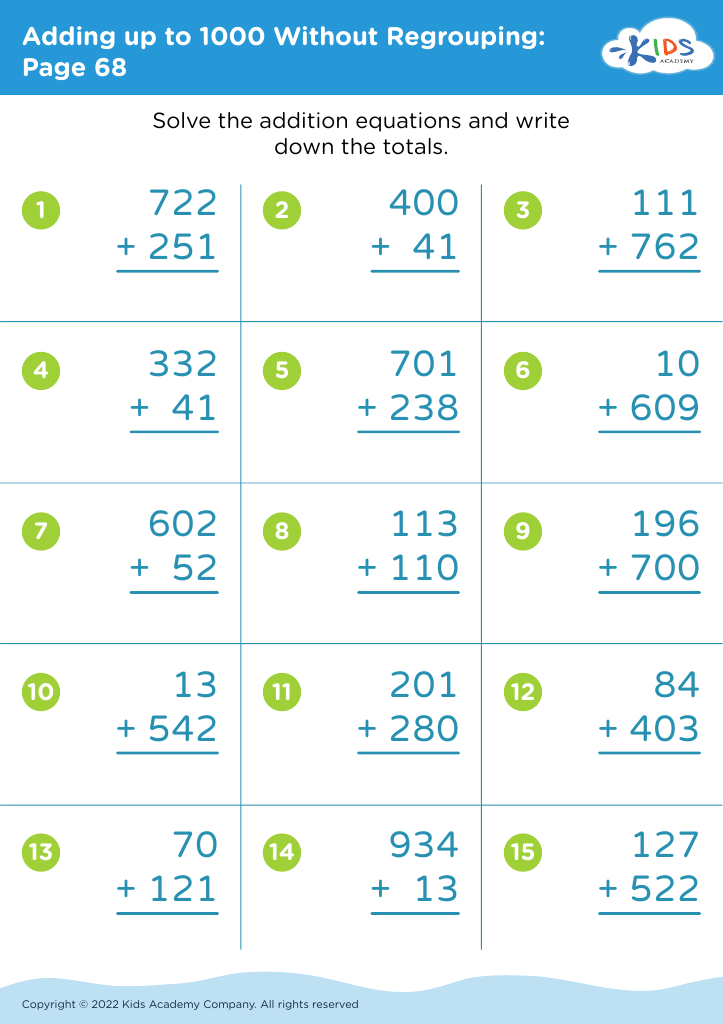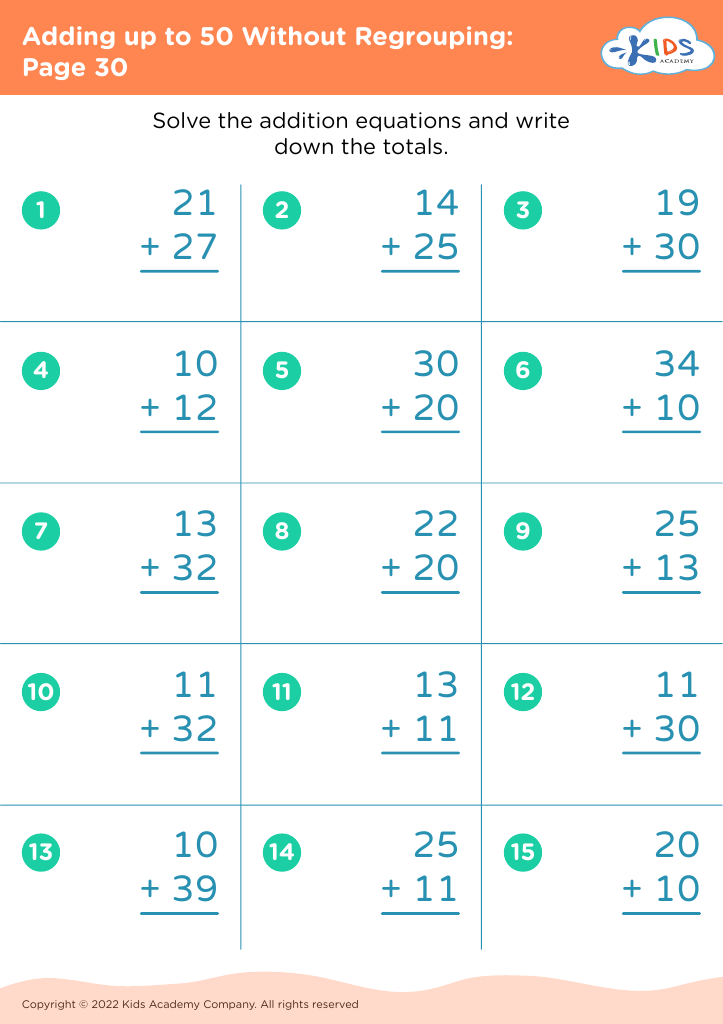Improving counting skills Addition Worksheets for 7-Year-Olds
9 filtered results
-
From - To
Enhance your child's counting and addition skills with our engaging worksheets designed specifically for 7-year-olds. These printable activities from Kids Academy focus on improving mathematical abilities through fun and interactive exercises. Each worksheet is crafted to help children grasp the basics of addition, fostering a strong foundation in math. By incorporating various themes and colorful illustrations, our resources make learning enjoyable and effective. Perfect for at-home practice or classroom use, these worksheets ensure your child develops confidence and proficiency in counting and addition. Visit Kids Academy for high-quality educational materials tailored to support your child's math journey.
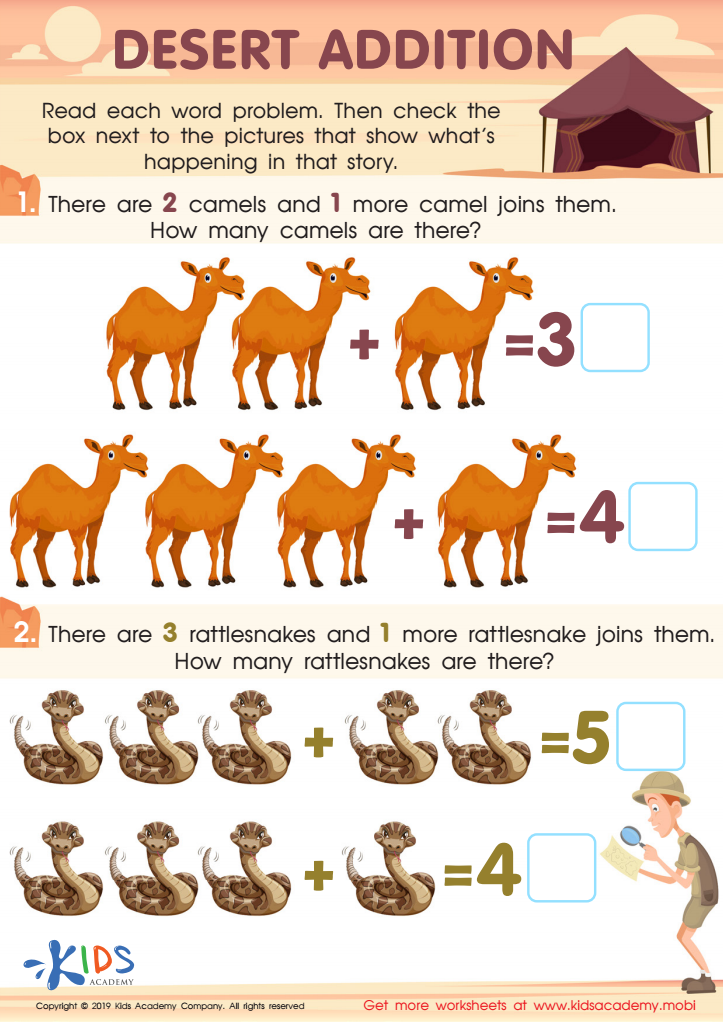

Desert Addition Worksheet
Improving counting and addition skills in 7-year-olds is crucial for several reasons. Firstly, these foundational math skills directly contribute to their overall cognitive development. Basic arithmetic fosters problem-solving abilities, logical thinking, and reasoning skills, which are essential not just for mathematics but for making informed decisions and understanding complex concepts later in life.
Secondly, strong counting and addition skills help build confidence in children, motivating them to tackle new and more challenging activities both inside and outside the classroom. A sense of achievement in mathematics often translates into a positive attitude toward learning in general, creating lifelong learners.
From an academic perspective, early proficiency in math is linked to better performance in future educational endeavors. Many advanced math topics, such as multiplication and division, build directly on the principles of counting and addition. Mastery of these early skills provides a solid foundation, making the learning of more complex topics less daunting and more approachable.
Further, numeracy skills are integral to daily activities, such as telling time, baking, shopping, and even organizing tasks. A good grasp of basic math may help children understand and navigate the world around them more effectively.
In essence, nurturing strong counting and addition skills at a young age sets the stage for academic success, practical competence, and robust cognitive development, all of which are vital in shaping a well-rounded individual.

 Assign to My Students
Assign to My Students
